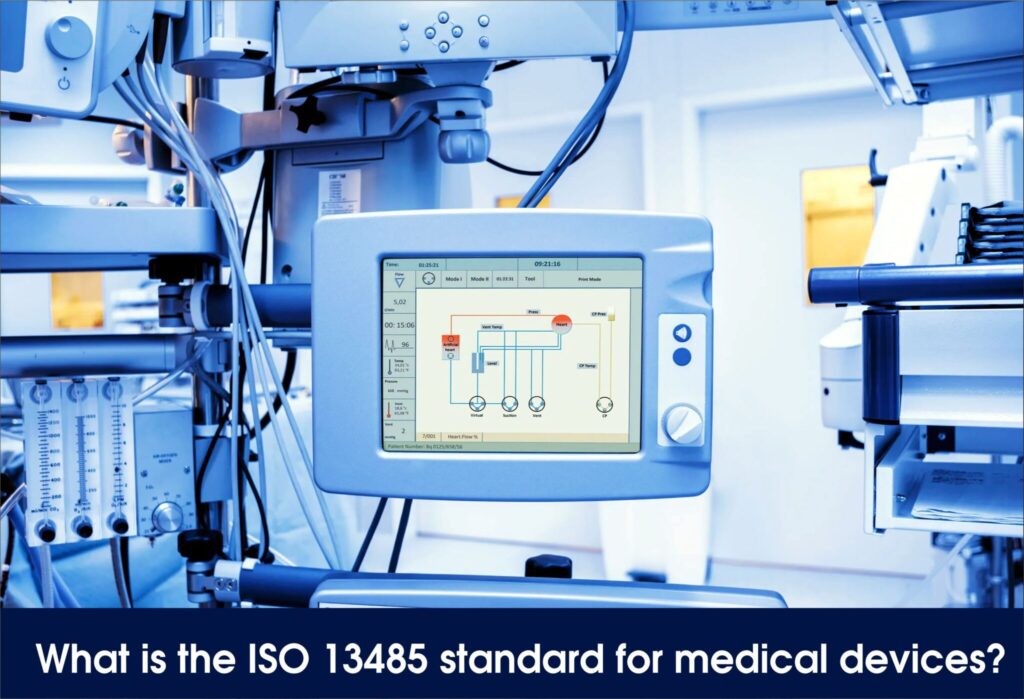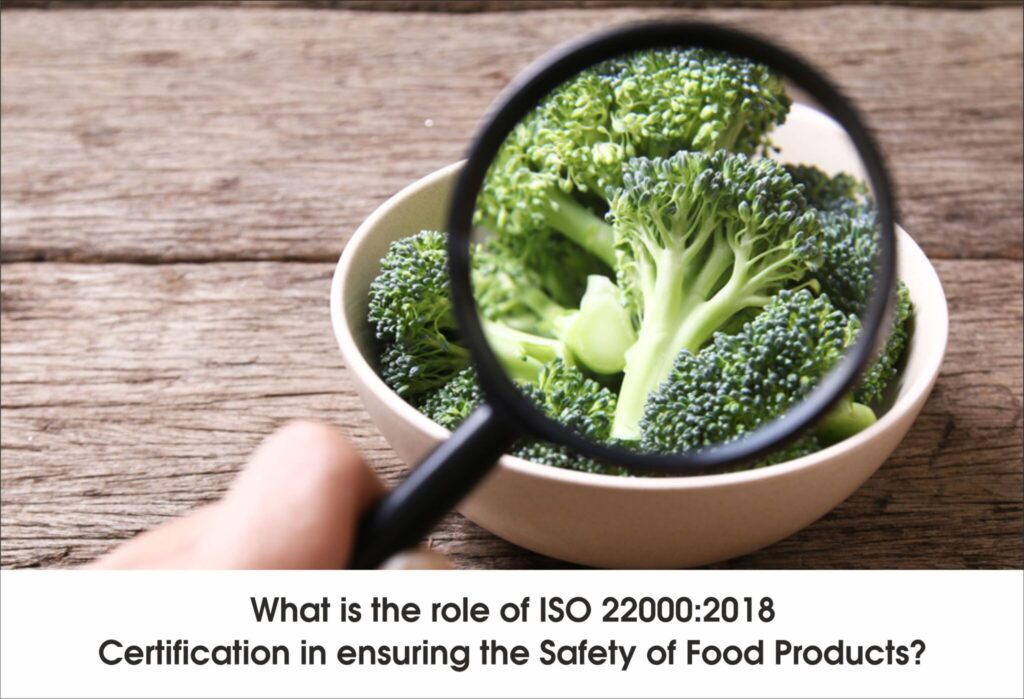What is the ISO 13485 standard for medical devices?

In the fast-paced and ever-evolving world of the medical device industry, ensuring the highest standards of quality is paramount. With patient safety at stake, it is crucial for companies operating in this sector to have robust quality management systems in place. This introduction will shed light on the importance of quality management in the medical device industry and how it contributes to regulatory compliance, adherence to ISO 13485 standards, and overall success in the healthcare industry. The medical device industry faces unique challenges due to its complex nature and stringent regulatory requirements. Manufacturers must navigate through a maze of regulations, guidelines, and standards to ensure that their products are safe, effective, and meet the needs of patients and healthcare professionals alike. This is where a well-implemented quality management system becomes indispensable. ISO 13485 serves as a globally recognized standard for quality management systems specific to the medical device industry. Compliance with this standard demonstrates an organization’s commitment to consistently meeting customer requirements while adhering to applicable regulatory requirements. It provides a framework that enables companies to establish efficient processes for product development, manufacturing, distribution, installation, and servicing. By implementing a robust quality management system based on ISO 13485 principles, organizations can streamline their operations while minimizing risks associated with product defects or non-compliance. Such systems facilitate effective documentation control, risk management practices, supplier evaluation processes, corrective action procedures, and internal audits – all essential elements for maintaining high-quality standards throughout the product lifecycle. Furthermore, investing in quality management not only ensures compliance but also enhances reputation within the healthcare industry. Healthcare providers rely on manufacturers who can consistently deliver safe and reliable devices that meet regulatory requirements. Demonstrating compliance with ISO 13485 or other relevant regulations builds trust among stakeholders by showcasing an organization’s commitment towards patient safety. What is ISO 13485 and the benefits of Implementing ISO 13485 for Medical Device Manufacturers and End-users? ISO 13485 is an internationally recognized quality management system standard specifically designed for the medical devices industry. It is based on the ISO 9001 process model approach and serves as a useful framework for manufacturers to handle the obligations under the Medical Device Directives. Medical device producers and end users can both benefit from implementing ISO 13485 For Manufacturers: ⮯ Medical device producers and end users can both benefit from implementing ISO 13485 For Manufacturers: Improved Product Quality: The overall quality of products is increased as a result of the process-based approach that ISO 13485 encourages for creating, implementing, and enhancing the performance of a quality management system. Regulatory Compliance: The standard aids organisations in proving they are in conformity with laws everywhere, which may open up more market opportunities. Risk Management: The requirements for risk management are incorporated into ISO 13485 at every stage of the product realisation process, offering a proactive method of detecting and reducing risks. Operational Efficiency: The standard promotes a methodical approach to managing processes, increasing operational consistency and efficiency. Enhanced Customer Satisfaction: Manufacturers may increase customer satisfaction and establish long-lasting connections by providing high-quality products and satisfying client requests. Competitive Advantage: As it shows a dedication to quality, having ISO 13485 certification might give an advantage over rivals who lack it. Benefits from implementing ISO 13485 For End-Users: Assured Product Safety: The emphasis on risk management in ISO 13485 makes sure that patient safety is put first when designing and producing medical devices. Reliable Performance: End users may trust the dependability of ISO 13485-certified goods since the standard places a strong emphasis on consistent performance. Increased Trust: Trust in the product and the producer may both rise when consumers are aware that the maker upholds an internationally acknowledged quality standard. Product Traceability: Record-keeping and traceability are required by ISO 13485, which might be important in the event that a medical device has problems or is recalled. Conclusion ✅ In Conclusion: The Significance of ISO 13485 in Ensuring Quality and Safety in the Medical Device Industry In conclusion, ISO 13485 plays a crucial role in ensuring quality and safety in the medical device industry. By raising standards and promoting a culture of continuous improvement, this international standard helps companies in the healthcare sector deliver products that meet regulatory requirements and exceed customer expectations. Adherence to ISO 13485 not only demonstrates a commitment to quality management but also instills confidence in stakeholders such as healthcare professionals, patients, and regulatory bodies. It provides a framework for organizations to establish robust processes, implement risk management strategies, and maintain effective documentation systems. Through regular audits and assessments, companies can identify areas for improvement and take proactive measures to enhance their operations. This constant drive for excellence contributes to the overall growth of the organization while ensuring the safety of medical devices used by millions of people worldwide. In an industry where precision, reliability, and patient well-being are paramount, ISO 13485 serves as a guiding force that drives organizations towards best practices. By adhering to this standard, companies can navigate complex regulatory landscapes with ease while maintaining their focus on delivering high-quality products that save lives and improve patient outcomes. In summary, ISO 13485 is not just a certification; it is an essential tool for achieving excellence in the medical device industry. Its significance lies in its ability to raise standards, foster continuous improvement through adherence to quality management systems, and ultimately ensure the highest levels of quality and safety in healthcare. Enjoy Reading – How Does ISO 13485 Certification Help Medical Device Manufacturers Know about ISO 13485:2016 Certification
What is the role of ISO 22000:2018 Certification in ensuring the Safety of Food Products?

The common concern shared by customers and food supply chain industries is related to the safety and quality of food products. Food safety is significant for public health and the reputation of food companies. Moreover, it is the responsibility of organisations to ensure the delivered food people are safe and free from contamination. The International Organisation for Standardisation (ISO) has developed ISO 22000:2018 certification. Furthermore, the standard mandates organisations to maintain and measure the security and quality of food products. In this blog, you will read about the importance of ISO 22000 and how it contributes to preserving the quality and safety of food items. What is ISO 22000 Certification? ISO 22000 is a globally known for Food Safety Management Systems (FSMS). The certification provides a robust framework for establishing, putting into practice, and maintaining a reliable food safety management system. Moreover, it includes organisations involved in the food supply chain, from farmers and food manufacturers to merchants and food service providers, who must adhere to ISO 22000 requirements The role of ISO 22000 Standards in ensuring Food Safety ⮯ ISO 22000 provides a systematic framework for food industries to ensure and maintain food safety. It mandates organisations to establish hazard analysis, preventive measures, traceability, communication, and continuous improvement to reduce risks of contamination and illnesses. Hazard Analysis: ISO 22000:2018 mandates an organisation to conduct a risk assessment to outline potential food safety hazards and threats. Moreover, it involves identifying and detecting potential dangers at all stages of the food supply chain. Hazards can be biological, chemical, and contaminants, and HACCP helps organisations take proactive measures to mitigate them. Preventive Measures: Organisations must follow ISO 22000 guidelines and implement preventative measures to identify and manage risks. These precautions could include sanitation protocols, hygiene standards, and quality assurance tests. Moreover, it reduces the likelihood of contamination and foodborne illnesses. Traceability: The standard mandates organisations to follow the principle of traceability to establish a safe food supply chain. As a result, it enables businesses to monitor and trace the movement of food products along the supply chain. Through traceability, it is possible to rapidly locate potential hazards concerning food safety and address them accordingly. Communication: Effective communication is a significant component to ensure success. ISO 22000:2018 standard requires an organisation to establish productive communication within the company and with outside parties like clients and suppliers. Moreover, it focuses on imparting information about potential threats to food safety, protective measures, and any modifications to procedures or goods clearly and concisely. Continuous Improvement: The principle of continuous improvement requires an organisation to continuously examine and upgrade its food safety management systems to reflect new information and conditions. Compliance with Legal Requirements: ISO 22000 helps organisations maintain and measure compliance with national and international laws and regulations related to food safety. Moreover, it helps food industries to adhere to legal obligations and avoid legal issues and penalties. Benefits of ISO 22000:2018 Standards ⮯ ISO 22000 offers numerous benefits to the food industry. Moreover, it assures consumers of safer products while boosting organizations’ competitiveness and trustworthiness in the food industry. The following are the benefits of the Food Safety Management Systems (FSMS) :- Establishes a safe food supply chain: Implementing ISO 22000 assists businesses in reducing the risk of foodborne illnesses by implementing appropriate preventive measures. It provides tools and controls for organisations to trace the food supply chain, from farmers and manufacturers to distributors. Creates a better reputation: ISO 22000 Certification is a hallmark of trust and reliability. Hence, an organisation with an FSMS certificate increases the brand value of an organisation by demonstrating its commitment to food safety. Access to the global market: ISO 22000:2018 certification exhibits an organisation’s commitment to international best practices. However, many merchants and customers prefer ISO-certified companies to conduct business with or buy goods. Cost savings: It helps organisations avoid food safety accidents. However, businesses can save money by avoiding expensive product recalls, legal disputes, and harm to their reputation. Conclusion ✅ ISO 22000 is essential to assure the safety and quality of food items. Additionally, it facilitates effective communication, fosters continuous development, and aids organisations in identifying and controlling risks to food safety. Organisations with an ISO 22000 certification can offer consumers safer food products and improve their reputation in the global food market. Enjoy Reading – What are the ISO 22000 Requirements ISO 22000 Food Safety Management Systems How to Start Food Business In India ISO Certifications For Hospitality Businesses
